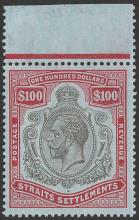China and Mongol Empire - A Look at the Early Postal Stations
Published

The many dynasties of China and the Mongol Empire are two of the earliest and influential empires in Asia and the rest of the world, and they made their mark on different fronts. In terms of military might, China and the Mongols are known for their military prowess. In fact the Mongol Empire produced some of the best military tacticians including Genghis Khan.
While the advanced culture and military prowess are the main advantages of these two empires that allowed them to prosper and become two of the world’s early powers, these two also relied on a basic messaging system that kept them ahead of the rest. In 1200, the Mongol Empire through Genghis Khan adopted a postal station, and an empire-wide message system carried out by their messengers.
Kublai Khan, the grandson of Genghis Khan also took advantage of the mail system, and extended the system during the Yuan Dynasty. The postal system worked for a number of purposes - it was used for the dissemination of official mail, for communication of foreign dignitaries stationed in the empire, for travelling officials and of course for military use. Also, these postal stations were used in trade and in the delivery of domestic and foreign tribute.
An empire’s contribution to postal service
There were more than 1,400 postal stations created in China by the end of Kublai Khan’s time. These postal stations had access to more than 50,000 horses, 6,700 mules, 1,150 sheep, 6,000 boats, 400 carts and more than 200 dogs. The postal stations were strategically positioned in different parts of the empire, traditionally 15 to 40 miles apart and were manned by attendants. As a practice, the couriers who reachd a particular postal station were provided with shelter, food and an extra horse. The traditional practice then was to require the couriers to travel for an average of 30 miles daily. The postal service created by the Mongol Empire was successful, even prompting Marco Polo to say that the postal system then was efficient.








